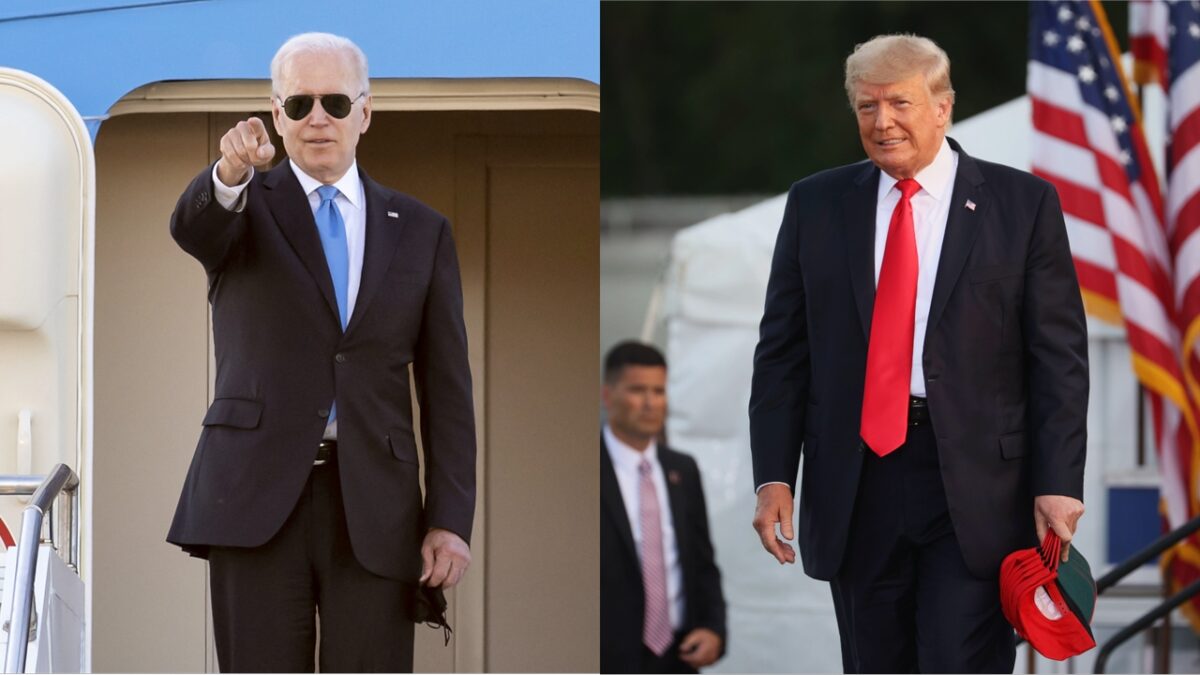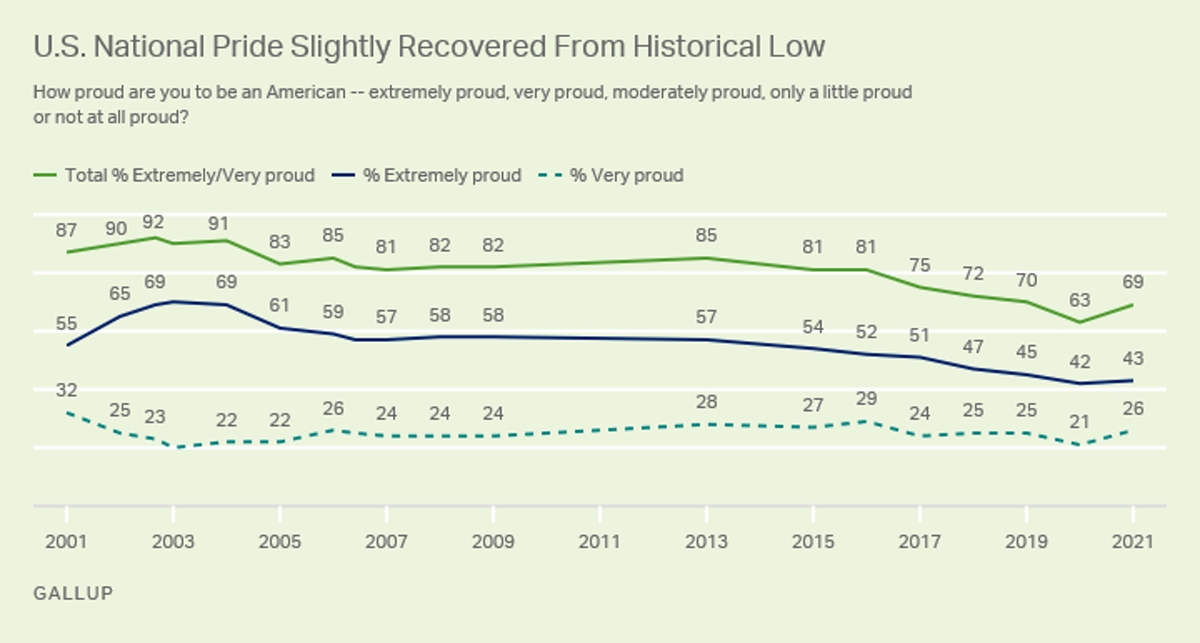USA! USA! Pride in Being an American Jumps 6 Points After Trump-Era Record Low

MARTIAL TREZZINI/POOL/AFP/Getty Images – Scott Olson/Getty Images
Six months after President Joe Biden’s inauguration, the percentage of people who are proud to be American has jumped six points after a series of record lows under President Donald Trump — but still has not rebounded to pre-Trump levels.
For years, Gallup has asked a sample of U.S. adults “How proud are you to be an American — extremely proud, very proud, moderately proud, only a little proud or not at all proud?”
The poll saw record pride following 9/11, with scores in the 90 percent range, before settling into a see-sawing decade-plus in the mid-to-low 80s. But the election of Trump coincided with four years of decline: 75 percent in 2017, 72 percent in 2018, 70 percent in 2019, and a new record low of 63 percent in 2020.
In 2020, the percentage of people who are proud to be an American has rebounded to 69 percent, with 43 percent saying they’re “extremely proud” and 26 percent saying they’re “very proud.”

The rise appears to be the result of Democrats, whose pride in being an American has jumped twenty points since last year, from 42 percent who said they were “extremely” or “very” proud to be an American in 2020, to 62 percent in 2021. Republican pride ticked down slightly, from 88 percent to 87 percent, including a 3-point decline in Republicans who are “extremely proud” to be an American.
Gallup also found that a genertional divide appears to be fueling the overall decline in proudness to be an American:
Younger Americans are much less likely than their older peers to express pride in the country. Currently, half of Americans younger than age 35 are proud to be Americans, including 26% who are extremely proud. In contrast, more than seven in 10 Americans between the ages of 35 and 54, and eight in 10 Americans aged 55 and older, are proud.
In past years, there were only modest age differences. For example, in 2005, 10 percentage points separated the youngest (56%) and oldest adults (66%) in extreme pride, compared with a 27-point age gap today.
Thus, the decline in national pride seen today appears to result partly from younger generations being less likely to say they are proud of their country than the older generations who preceded them.
Another recent poll found a six-point decline in the percentage of Americans who think that the founding fathers would consider the United States a success.






